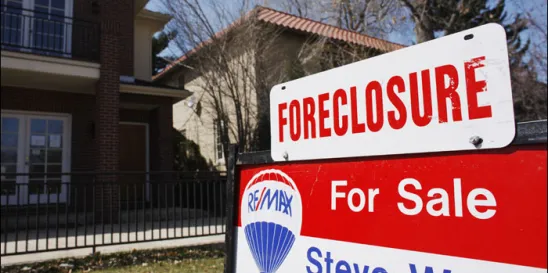In a monumental and overdue shift in foreclosure jurisprudence, in Finch v. U.S. Bank, N.A., 2024 ME 2,---A.3d---, the Law Court overruled its holding in Pushard v. Bank of America, N.A., 2017 ME 230, 175 A.3d 103, which effectively granted free houses to borrowers when a lender failed to strictly comply with the statutory requirements for a notice of default codified in 14 M.R.S. § 6111.
After requesting supplemental briefing from the parties in the Finch matter and a companion case addressing the Court’s foreclosure jurisprudence, J.P. Morgan Mortgage Acquisition Corp. v. Camille J. Moulton, Law Court Dkt. No. Oxf-21-412 (argued Nov. 1, 2022), which has yet to issue from the Court, the Law Court overruled Pushard to the extent it held that the acceleration of a note balance can occur without a lender having proved (and not just alleged in its complaint) that it complied with the statutory and contractual obligations to accelerate the amount due on the note, including the express limitations codified in 14 M.R.S. § 6111. The decision in Finch effectively ends what the Court deemed the “court-as-casino” rule of Pushard.
Both Finch and Moulton involved defective section 6111 notices of default and trial court judgments for the borrowers declaring, as required by Pushard, that the notes and mortgages were unenforceable and that the banks were required to discharge the mortgages.
Section 6111, the statutory provision outlining the requirements for a default notice on residential mortgages in Maine, provides that “[a] mortgagee may not accelerate maturity of the unpaid balance of the obligation or otherwise enforce the mortgage . . . until at least 35 days after” issuing a written notice of default to the borrower in compliance with the statute.
Despite the plain statutory language of section 6111, however, the Law Court in Pushard held that the lender had accelerated the balance of the obligation merely by filing the foreclosure action and alleging in its complaint that the entire balance was then due. Pushard, 2017 ME 230, ¶¶ 27, 31-33 (citing Fed. Nat’l Mortg. Ass’n v. Deschaine, 2017 ME 190, ¶ 26, 170 A.3d 230).
Accordingly, by application of Pushard's holding, a judgment in favor of a borrower based on a typographical error or other nominal mistake in a lender’s section 6111 notice of default renders a note and mortgage unenforceable by operation of res judicata, and requires transfer of title to the borrower free and clear of the lender’s lien. In other words, free houses for borrowers.
In Finch, seven years after Pushard, the Law Court corrected its course with respect to the claim preclusive effect of a foreclosure judgment based on an ineffective notice of default, acknowledging the “disproportional and draconian nature of that result, the doubtful legal premise that it rests on—that a lender can accelerate a loan balance by commencing a foreclosure action without having the statutory right to take either step, and the fact that no other jurisdiction has adopted either that result or that premise.” Finch, 2024 ME 2, ¶ 5.
In a lengthy and well-reasoned opinion, the majority of the Court reconsidered its analysis in Pushard, including the legal authority on which it rested, and weighed the justifications for overruling Pushard against the countervailing considerations of stare decisis.
On the merits, the Law Court focused on the clear language of section 6111 and concluded that, if the lender failed to comply with that provision’s notice requirements, then the lender lacks the right to accelerate the note balance or commence a foreclosure action. The fact that the Bank could not accelerate the note balance or commence the mortgage means that the acceleration and foreclosure claims could not be litigated—and, therefore, a subsequent foreclosure action is not barred. In turn, this means that the note and mortgage remain enforceable. Id. ¶ 7.
The Court declined to follow Pushard based on stare decisis considerations. The Court concluded that all relevant factors—consistency in the law, being an anomaly among other jurisdictions, workability of the precedent, reliance, and public policy considerations—weighed in favor of overruling Pushard. As succinctly stated by the Law Court, doing so “would avoid the draconian windfall outcome under which a typographical error in a foreclosing lender’s first and only section 6111 notice voids the note and mortgage and transfers title to the borrower.” Id. ¶ 49.
It is noteworthy that the Court did not rule out free houses for borrowers under egregious circumstances where dismissal with prejudice is ordered by the trial court as a sanction (as may be the case when, for example, a lender repeatedly brings defective foreclosure actions against a borrower), and it leaves undisturbed the claim preclusive effect of a first foreclosure action with respect to the unaccelerated amount past due under the note that could have been litigated. Otherwise, in Finch, the foreclosure judgment in Finch’s favor does not bar a future foreclosure action by U.S. Bank or render the note and mortgage unenforceable. No more free houses.
It remains to be seen whether and how the Moulton decision will adopt or expand on the Law Court’s decision in Finch, and indeed how Finch will impact other foreclosure precedent in Maine, including Bank of Am., N.A. v. Greenleaf, 96 A.3d 700, 711 (Me. 2014) (addressing standing to foreclose), Beal Bank USA v. New Century Mortg. Corp., 217 A.3d 731 (Me. 2019) (rejecting the equitable trust doctrine as a way to confer standing on a foreclosing party), and Johnson v. Samson Constr. Corp.,1997 ME 220, 704 A.2d 866 (dismissal of first foreclosure action with prejudice as sanction in commercial foreclosure barred second foreclosure).





 />i
/>i

